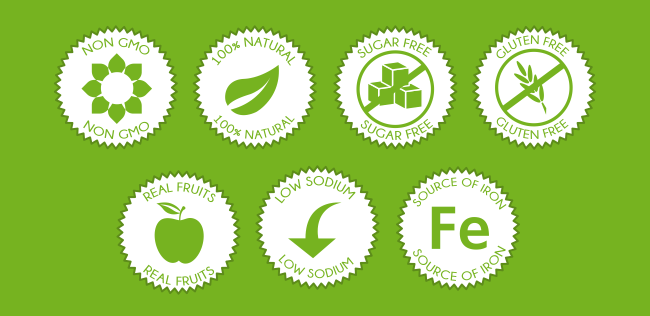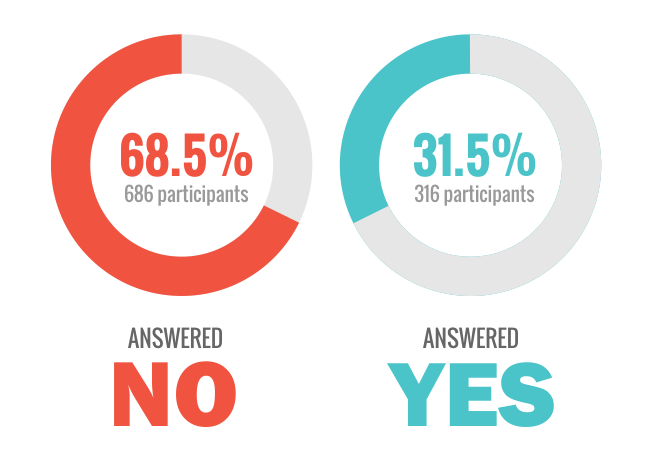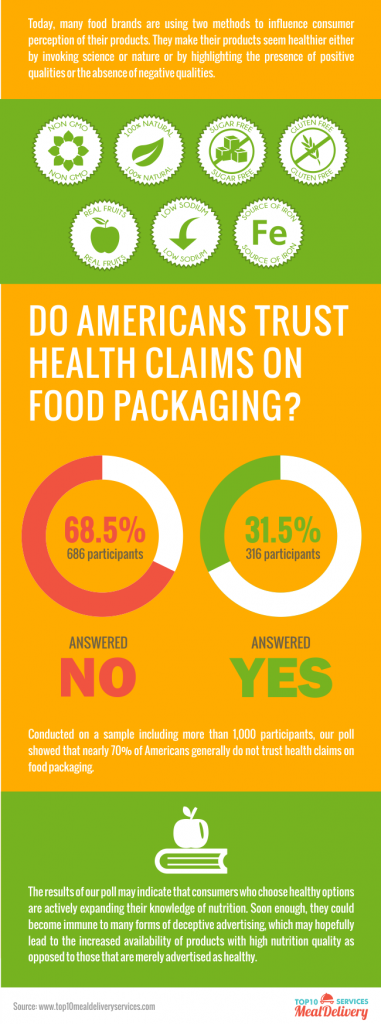From fat-free water to wholesome cereals, the food and drink market is flooded with product labels designed to make consumers feel like they are making a healthy choice, even though this is not always the case. While Americans have certainly become more interested in improving their wellness through diet, our latest poll shows that they are not as easily swayed by health claims as food manufacturers seem to assume.
Conducted on a sample including more than 1,000 participants, our poll showed that nearly 70% of Americans generally do not trust health claims on food packaging.
This surprising finding forces us to wonder about both its causes and potential implications.
The Rise Of American Health Consciousness
As recently as in the early 2000s, Americans were still guzzling sodas and opting for pre-packaged foods instead of home-cooked meals, thus maintaining their reputation as the fast-food nation. Faced with the consequences of such choices, including but not limited to diabetes and heart disease, consumers across the nation started moving toward healthier food options.
The results of a 2015 study conducted by the Nielson Global Health And Wellness Foundation showed that 41% of millennials were willing to spend more money on products they perceived as healthier. The same was true for just 26% of participants over the age of 35. These findings were indicative of a growing trend toward healthy eating that is proving to be more than a fad.
With a shift in consumer interest came a change in the way food products and drinks are marketed. According to a 2019 paper by Pierre Chandon, the L’Oréal Chaired Professor of Marketing, Innovation, And Creativity at INSEAD, food brands are currently using two methods to influence consumer perception of their products. They make their products seem healthier either by invoking science or nature or by highlighting the presence of positive qualities or the absence of negative qualities.
Consequently, food labels now feature phrases such as all-natural, wholesome, homemade, no preservatives, gluten-free, sugar-free, low in sodium, no artificial ingredients, high-protein, high-vitamin or high-calcium. Although none of these labels explicitly state that the products are healthy, they are meant to inspire consumers to view them as such.

As Chandon pointed out, there is usually no link between these common health claims and the actual nutrition quality of the products. In fact, his research showed that the correlation between them is 0.04; in other words, it is virtually non-existent.
Still, the 2018 FHS report revealed that health claims did in fact influence the purchasing decisions of the surveyed consumers. For example, the report showed that 4 out of 10 consumers would be willing to pay more for a product with no artificial ingredients and 1 in 5 would be willing to pay 100% more. However, our 2019 poll yielded quite different results.
Entering The Age Of Consumer Skepticism
In Q4 2019, at Top10MealDeliveryServices.com, we launched a poll on our website. We asked our readers the following question:
Do you generally trust health claims on food packaging?
Respondents could choose either yes or no as their answer. By the time we closed our poll at the end of 2019, exactly 1,002 individuals had answered our question. As many as 686 participants (68.5%) stated that they generally do not trust such claims.

Considering that just a year before the annual FHS report showed that consumer decisions are guided by claims of healthfulness on food labels, this result was not in line with our expectations. The question is what motivated the majority of our participants to choose the negative answer.
One possible reason is that we live in the age of information. This means that health-conscious consumers have access to a wealth of reliable information sources that point out the dubious nature of health claims on food packaging.
In recent years, scientific data on this subject has entered mainstream media as well. Various popular media companies like CNN have started publishing articles that warn consumers about misleading healthfulness claims. This is likely to have influenced the way Americans think about the supposedly healthy food products they find on supermarket shelves.
While it is possible that numerous other factors have shaped the answers of our participants, the fact that almost 70% of them expressed skepticism should definitely make food manufacturers wonder whether their marketing strategies will remain fruitful in the near future.
Conclusion
There is no denying that Americans are becoming increasingly health-conscious and that the younger generations are consistently choosing food options that can contribute to their well-being and longevity. Until recently, health claims on food packaging seemed to greatly influence consumer decisions and convince buyers to opt for sugar-free, low-calorie or all-natural products.
However, the results of our poll may indicate that consumers who choose healthy options are actively expanding their knowledge of nutrition. Soon enough, they could become immune to many forms of deceptive advertising, which may hopefully lead to the increased availability of products with high nutrition quality as opposed to those that are merely advertised as healthy.

